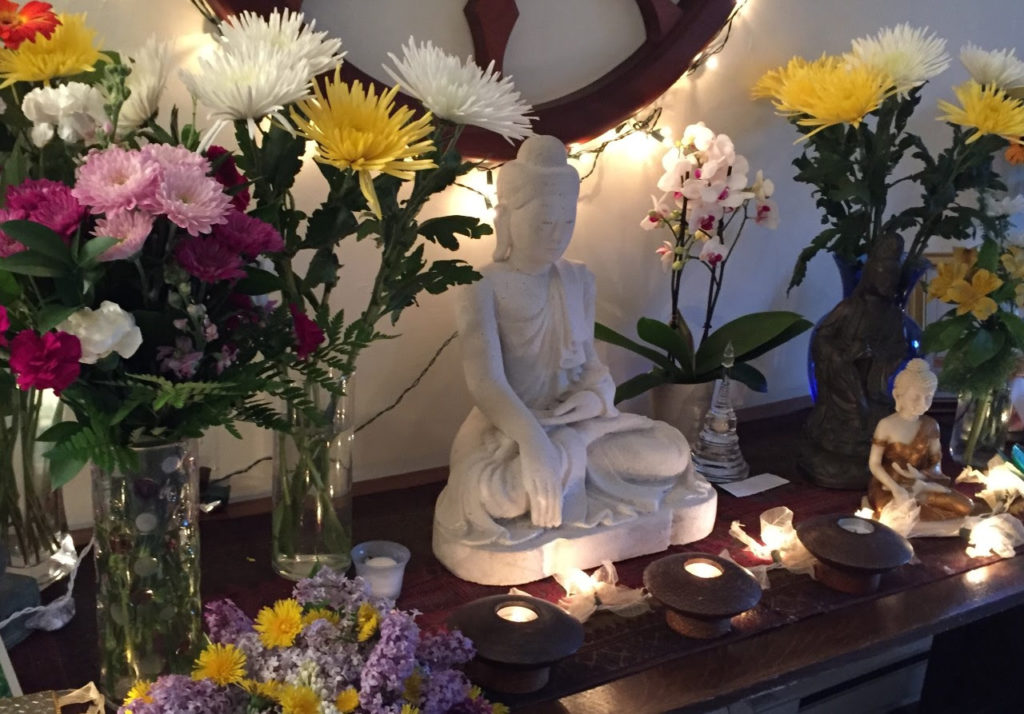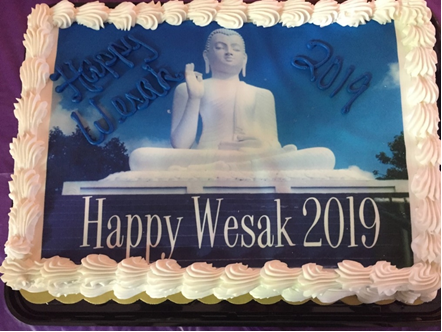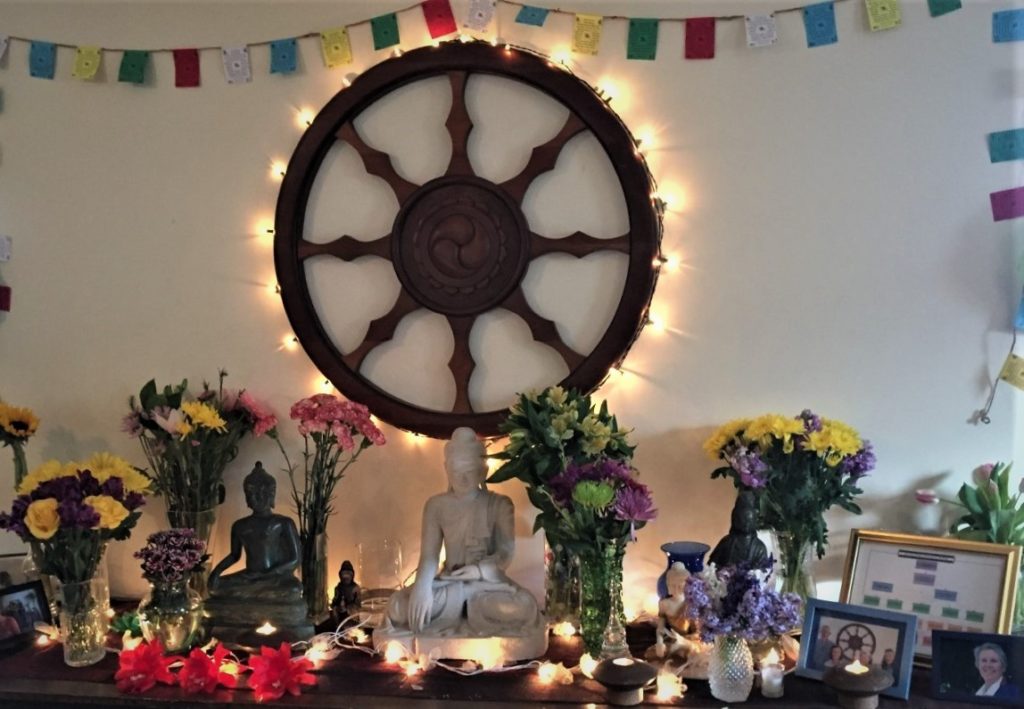
Celebrating Wesak
Wesak is the celebration of the birth, the enlightenment, and the passing (paranibbana*) of the Buddha. It is the major holy day in the Theravada Tradition. It is a time for those following the Buddhist path to rededicate themselves to their practice and study of the Dhamma.
The celebration is often held on the full moon in the month of May. RMI celebrates on the Wednesday (our All-Sangha night) closest to the full moon in May. We listen to essential teachings of the Buddha and chant the Refuges and Precepts to support our aspiration for practice.
We decorate the Vihara and members bring flowers to place on the altar. Candles are also an important element of the celebration. Both the flowers and candles add beauty to the altar, but they also emphasize an important teaching in Buddhism: impermanence. The beauty of flowers eventually fades and they die, and the light provided by candles burns out.
*Paranibbana is a Pali word which means that a person has attained enlightenment during her or his lifetime. In other words, the person completely eradicates the influence of greed, hatred and delusion. These defilements continuously create clinging and aversion which are the root of dukkha.
The Refuges
Buddhist practitioners take refuge in the Triple Gem: the Buddha, the Dhamma, and the Sangha. Refuge, of course, is shelter as well as resources to support life and vitality. When we take refuge in the Buddha, we recognize that he, by way of his own efforts through meditation and practice, attained enlightenment. Taking refuge in the Buddha, a human person just like us, also recognizes the seeds of enlightenment in each person. In fact, the Buddha invites all to, through direct experience, also attain enlightenment.
When we take refuge in the Dhamma, the teachings of the Buddha, we take up the invitation of the Buddha. He points us in the right direction, and encourages us to come and discover the truth of the Dhamma which leads to liberation from dukkha.
We are not alone in our journey. Taking refuge in the Sangha provides many levels of support for our efforts. Traditionally, refuge in the Sangha signifies refuge in the lineage of Buddhist practitioners who kept the teachings intact and the practice alive through the centuries. We also take refuge in our Sangha community, like-minded individuals on the path.
The Five Precepts
The Precepts help practitioners cultivate a clear mind through cultivation of ethical conduct. They are not intended to be commandments; rather they give us ways to train both our thoughts and actions to create harmony. It is difficult to advance in meditation and the cultivation of wisdom and compassion when we are tangled in harmful and unwholesome thoughts and actions. These precepts, then, are guides to help us see where we create our own suffering as well cause suffering for others.
Buddhists monks and nuns take many more precepts; lay women and men take five basic precepts. Some individuals struggle with the wording of the precepts (the set on the left below) and find it difficult to relate to them as they are translated from Pali, the language used by the Buddha. The second set of precepts (on the right below) are from Buddhist teacher, Ruth Denison, root teacher of Lucinda Green, RMI’s founder.
The five precepts as translated from the Pali
- I undertake the training to abstain from taking life.
- I undertake the training to abstain from taking what is not given.
- I undertake the training to abstain from false speech.
- I undertake the training to abstain from misconduct due to sex.
- I undertake the training to abstain from intoxicants which cloud the mind.
The five precepts reframed by Ruth Denison
- I refrain from harming life. I honor all life and work to develop a reverence and caring for life in all its forms.
- I refrain from taking what is not given. I cultivate generosity which causes the heart to grow stronger and lighter.
- I refrain from false, harmful, useless speech and senseless gossip. I am mindful in listening. My speech is an instrument of kindness, love and peace.
- I refrain from sexual activity that harms myself or others. Intimate relationships are a way to connect with honor and respect.
- I refrain from intoxicants of all forms which cloud and confuse the mind. I practice mindfulness to develop clarity andalertness.


